
Discover the Wonders of the Sedgwick Museum of Earth Sciences
Explore the Sedgwick Museum of Earth Sciences in Cambridge – a fascinating journey through the planet's geological and biological history.
The Sedgwick Museum of Earth Sciences in Cambridge is a must-visit for anyone fascinated by the natural world. With its extensive collection of geological specimens, this museum offers an engaging experience that highlights the history of the Earth and its diverse life forms. Explore fossils, minerals, and more, right in the heart of one of the world's leading educational institutions.
A brief summary to Sedgwick Museum of Earth Sciences
- University Of, Downing Pl, Cambridge, CB2 3EQ, GB
- +441223333456
- Visit website
Local tips
- Check the museum's website for any special exhibits or events happening during your visit.
- Plan to spend at least a couple of hours to fully appreciate the vast collection.
- Don't miss the opportunity to ask staff questions; they are knowledgeable and can provide fascinating insights.
- Visit during weekdays for a quieter experience, especially if you prefer a more relaxed atmosphere.
- Consider combining your museum visit with a stroll through the nearby university grounds for a complete day of exploration.
Getting There
-
Walking
If you are near the city center, head south towards Downing Street. Continue straight until you reach the intersection with Downing Place. Turn right, and you will find the Sedgwick Museum of Earth Sciences on your left at University Of, Downing Pl, Cambridge CB2 3EQ. It takes about 10-15 minutes to walk from the city center.
-
Bus
You can take the bus from various locations in Cambridge. Look for a bus with the direction toward the 'Addenbrooke's Hospital' or 'Trumpington'. Get off at the stop called 'Downing College', which is a short walk away. From the bus stop, walk north on Downing Street, and then turn left onto Downing Place. The museum will be on your left at University Of, Downing Pl, Cambridge CB2 3EQ.
-
Bicycle
If you are renting a bike, head towards the city center and follow the signs for the 'University of Cambridge'. Cycle down Downing Street and once you reach the intersection with Downing Place, turn right. The Sedgwick Museum of Earth Sciences will be located on your left at University Of, Downing Pl, Cambridge CB2 3EQ. There are bicycle racks available nearby.
Discover more about Sedgwick Museum of Earth Sciences
Iconic landmarks you can’t miss
Senate House Hill
0.4 km
Historic Senate House Hill in Cambridge offers stunning views, iconic architecture, and a vibrant academic atmosphere at the heart of the university city.

Duke House
0.4 km
A charming boutique guesthouse blending historic elegance with warm hospitality in central Cambridge.
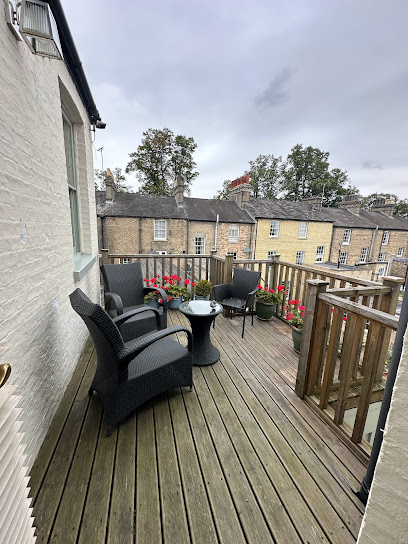
Reality Checkpoint
0.4 km
A colorful Victorian lamppost marking the boundary between Cambridge's academic bubble and the real world, standing proudly at Parker’s Piece.
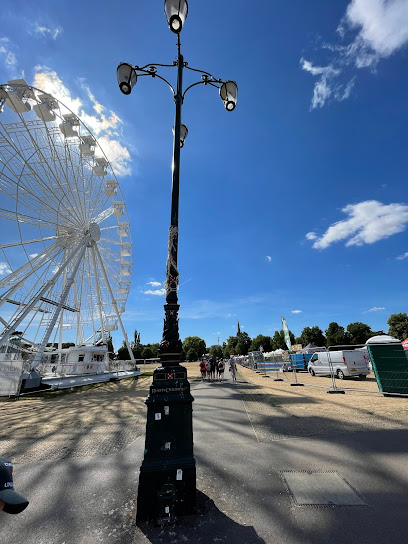
The Old Schools
0.4 km
Historic university landmark at Trinity Lane, blending Gothic and classical architecture at the heart of Cambridge's academic tradition.
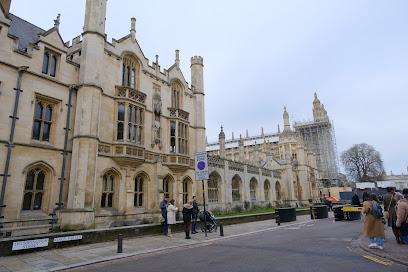
Bridge of Sighs
0.7 km
A Victorian Gothic covered bridge spanning the River Cam, linking history and beauty at St John's College, Cambridge.
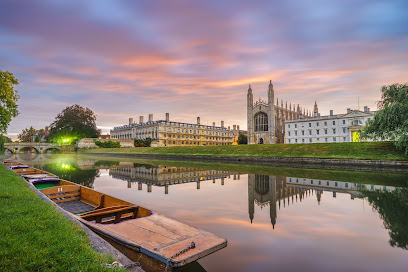
St. Paul's Church
0.8 km
Explore the architectural beauty and community spirit of St. Paul's Church, a serene Anglican landmark in Cambridge, perfect for reflection and connection.
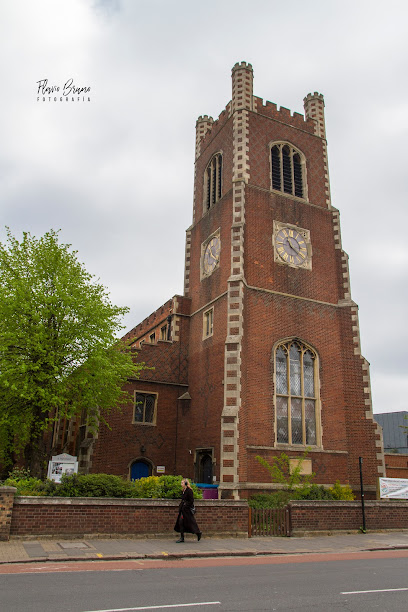
Magdalene Bridge
0.9 km
Historic cast-iron bridge over the River Cam, linking Cambridge’s academic heart with its ancient trading past.
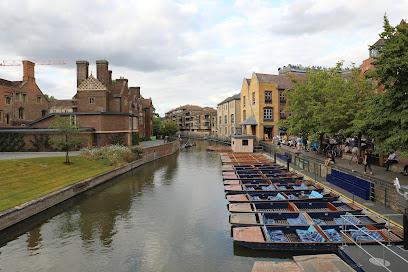
Lammas Land
0.9 km
Experience the natural beauty and family-friendly atmosphere of Lammas Land, Cambridge's beloved park along the River Cam.
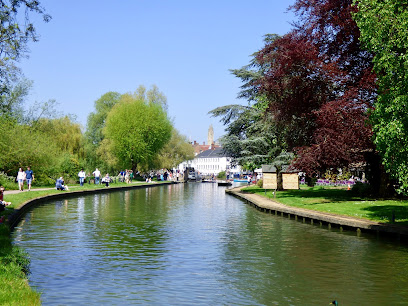
Jesus Green
0.9 km
Explore the beauty of Jesus Green in Cambridge, a lush park perfect for picnics, strolls, and family fun amidst picturesque riverside views.
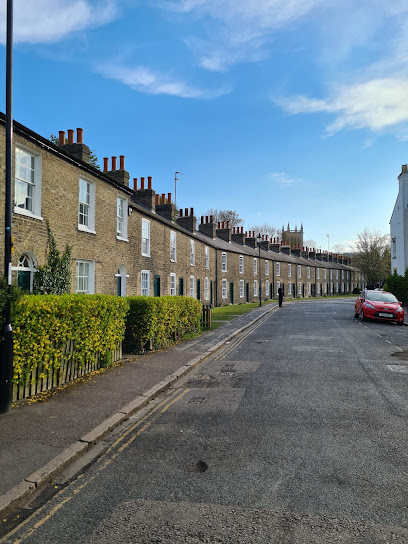
Vue Cinema Cambridge
0.9 km
Experience the joy of cinema at Vue Cinema Cambridge, where the latest movies meet a vibrant atmosphere in the heart of the Grafton Centre.

Midsummer Common
0.9 km
Discover the tranquility of Midsummer Common, a stunning park in Cambridge, perfect for relaxation, picnics, and scenic riverside walks.
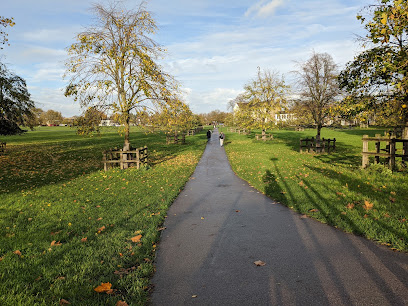
Hodson's Folly
1.0 km
Explore Hodson's Folly: A tranquil park in Cambridge with stunning views, rich history, and serene nature perfect for a peaceful retreat.
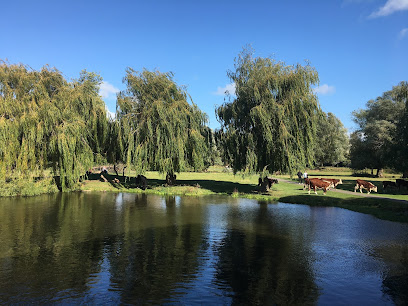
Lets Go Punting Cambridge
1.0 km
Experience the charm of Cambridge from the water with Lets Go Punting, offering serene boat tours past historic landmarks and lush landscapes.
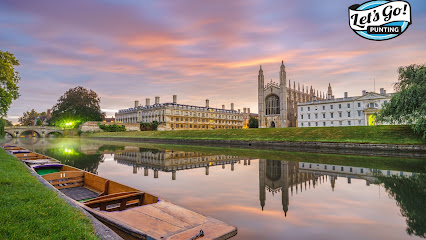
Museum of Cambridge
1.0 km
Explore the Museum of Cambridge, where local history comes alive through fascinating artifacts and engaging exhibits that tell the story of this historic city.
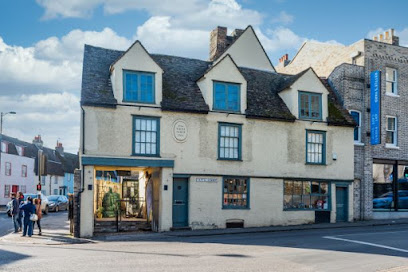
Kettle's Yard
1.0 km
Discover Kettle's Yard, Cambridge's unique art museum blending contemporary art with a serene home-like setting perfect for inspiration.
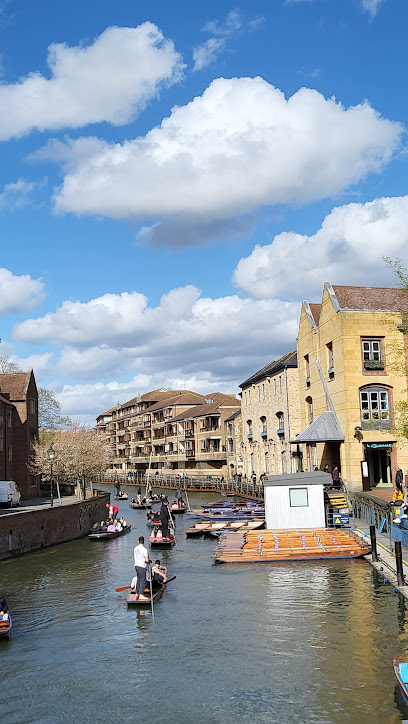
Unmissable attractions to see
Museum of Archaeology and Anthropology
0.1 km
Explore two million years of human history through captivating artefacts and world cultures at Cambridge’s Museum of Archaeology and Anthropology.
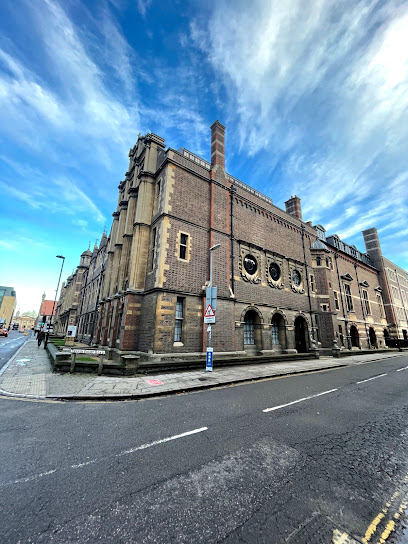
ArchaeoLink
0.1 km
Connecting Cambridge’s past and present through community archaeology and public engagement at the heart of the city’s academic quarter.
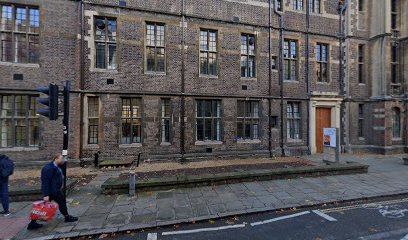
10 Downing Street
0.1 km
Historic Cambridge street lined with university museums, Georgian architecture, and rich academic heritage in the city center.
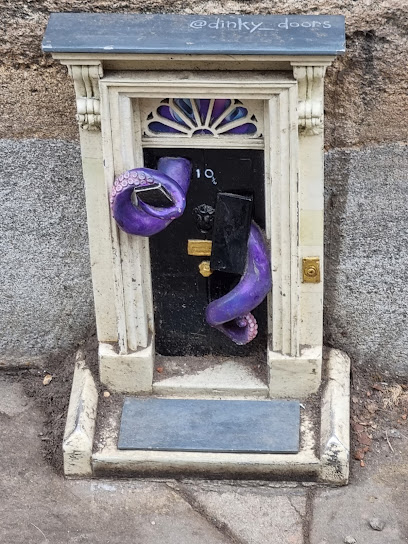
Arts Picturehouse
0.1 km
A historic Cambridge cinema blending indie films, art deco charm, and a lively café-bar in the city centre.
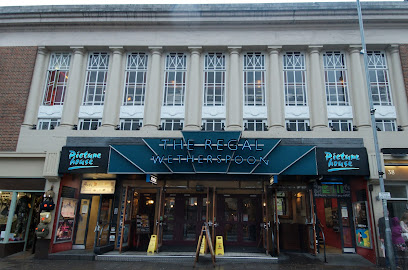
University Museum Of Zoology
0.1 km
Explore the rich diversity of animal life and evolutionary history at Cambridge’s University Museum of Zoology, home to iconic specimens and free entry.
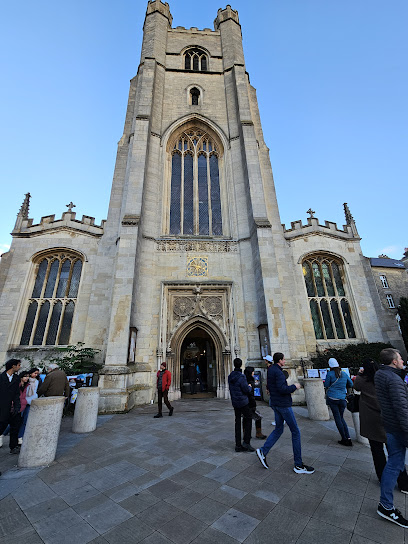
Grand Arcade
0.1 km
A vibrant shopping centre in Cambridge’s heart offering diverse stores, dining, and festive events in a modern, accessible setting.
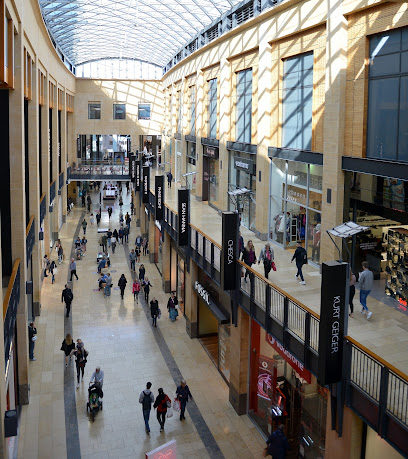
Lion Yard
0.2 km
A vibrant, centrally located shopping centre in Cambridge offering diverse stores from budget to premium in a welcoming community setting.
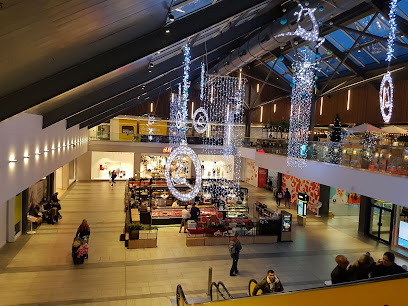
Christ's College Cambridge
0.3 km
Explore centuries of academic heritage and tranquil gardens at Christ's College, a historic jewel in the heart of Cambridge.
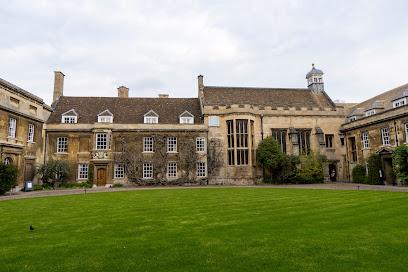
St Bene’t’s Church
0.3 km
Discover Cambridge’s oldest building, an Anglo-Saxon church with a serene atmosphere and centuries of history in its ancient tower and sacred walls.
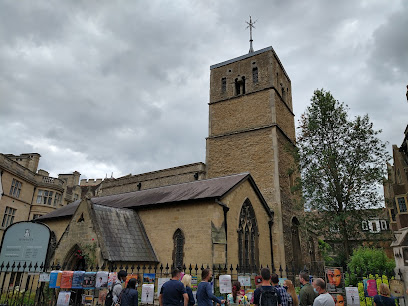
Corpus Christi College
0.3 km
Discover the intimate charm and historic legacy of Cambridge’s only college founded by townspeople, featuring medieval courts and the iconic Chronophage Clock.

Pembroke College
0.3 km
Discover Pembroke College, Cambridge’s historic gem blending medieval charm, Wren’s chapel, and tranquil gardens in the heart of the city.
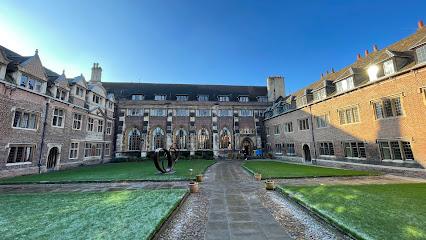
The Corpus Clock
0.3 km
A mesmerizing gold-plated clock with a mechanical grasshopper that devours time, blending art and science in the heart of Cambridge.
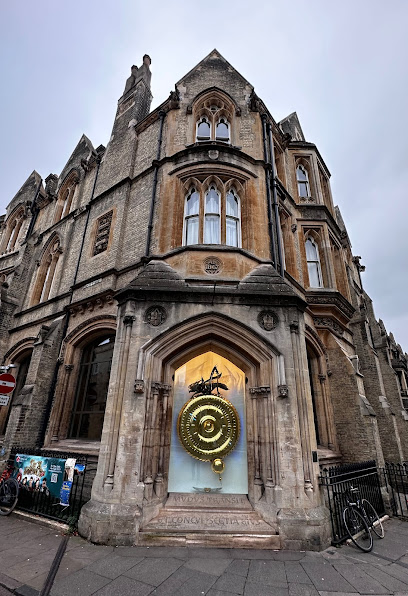
St Catharine's College
0.3 km
Discover historic charm and tranquil courtyards at St Catharine's College, a Renaissance gem in the heart of Cambridge.
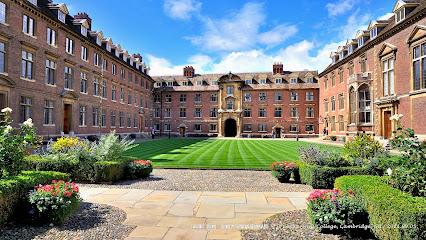
House of Wizard
0.3 km
Discover a magical world of Harry Potter collectibles and fantasy treasures in the heart of Cambridge’s Market Hill.

Little St Mary's Church
0.3 km
Discover centuries of history and serene beauty at Little St Mary's, Cambridge’s historic parish church beside Peterhouse.
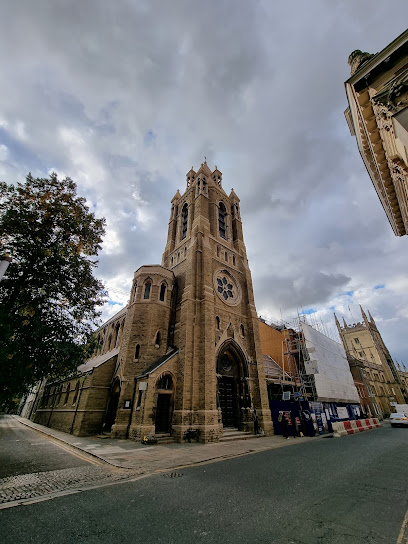
Essential places to dine
Charlie Chan Restaurant
0.2 km
Authentic Cantonese dining in Cambridge with a rich history and a diverse menu of classic Chinese dishes in a welcoming atmosphere.
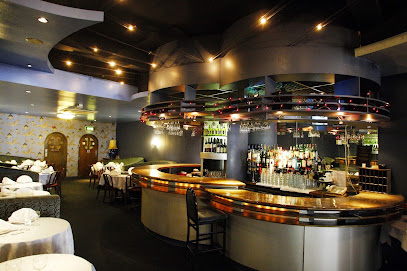
Honest Burgers Cambridge
0.2 km
Savor fresh British burgers and handmade rosemary chips in the heart of Cambridge’s vibrant Corn Exchange district.
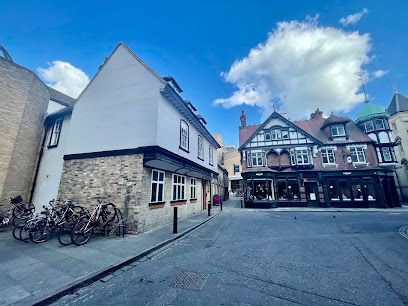
Pint Shop
0.2 km
A vibrant gastropub in Cambridge blending historic charm with an exceptional craft beer selection and hearty British fare.
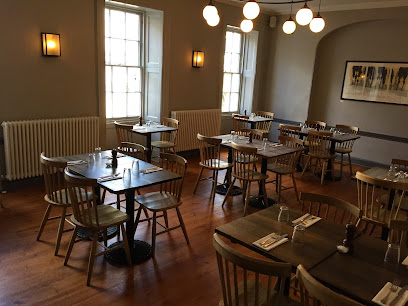
Sticks'n'Sushi - Cambridge
0.2 km
Experience the vibrant fusion of Japanese sushi and Nordic grilled sticks in the historic heart of Cambridge, where tradition meets innovation.

Parker's Tavern
0.3 km
Elegant British and European cuisine with expertly crafted cocktails in a stylish setting overlooking Parker’s Piece in Cambridge.
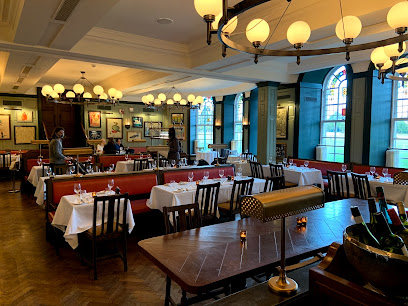
Aromi
0.3 km
Experience authentic Sicilian cuisine and stone-baked pizzas in a vibrant, historic Cambridge setting with a lively Mediterranean atmosphere.
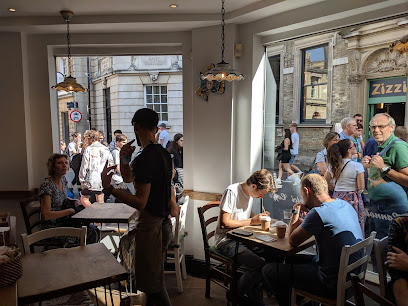
Smokeworks
0.3 km
Savor authentic American barbecue with tender smoked ribs and lively vibes in the heart of Cambridge’s historic center.

Bread & Meat
0.3 km
Savor Cambridge’s top roast meat sandwiches and comfort food in a relaxed, ethically minded eatery at 4 Bene't Street.
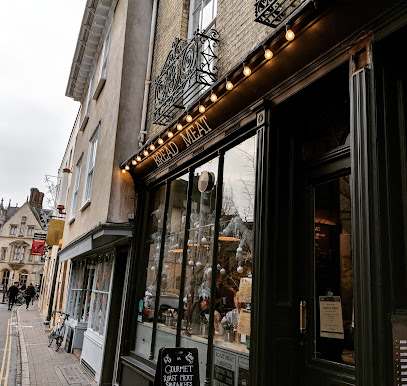
The Cambridge Chop House
0.3 km
Classic British steakhouse with locally sourced ingredients, historic charm, and stunning views opposite King's College Chapel in Cambridge.
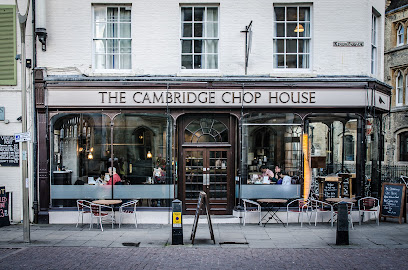
Market House
0.4 km
Historic charm meets modern British-Asian cuisine in Cambridge’s Market House, a multi-level dining and wine destination with a sustainable ethos.
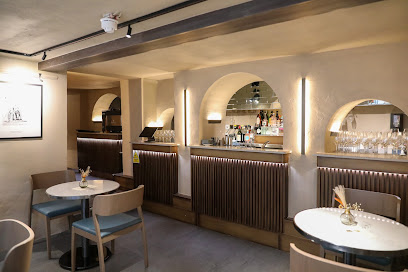
Browns Cambridge
0.4 km
Elegant British brasserie in Cambridge with Art Deco charm, quality cuisine, and a welcoming atmosphere for all occasions.

De Luca Cucina & Bar
0.4 km
Experience authentic modern Italian cuisine and vibrant atmosphere at De Luca Cucina & Bar in Cambridge’s lively Regent Street.
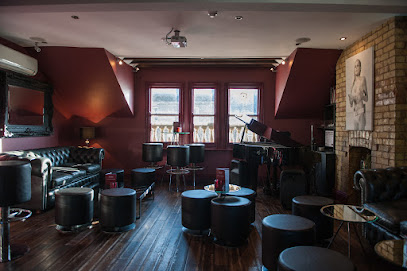
Bill's Cambridge Restaurant
0.4 km
Eclectic British dining with vibrant charm in the heart of historic Cambridge’s Green Street.

Garden House
0.5 km
Seasonal grill-focused dining with riverside views in a stylish, sustainable setting at Graduate Cambridge.
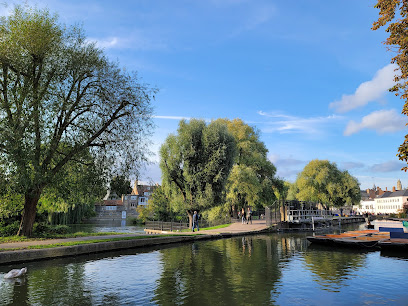
d'Arry's Restaurant, Liquor Loft & Cheesemonger
0.5 km
Experience Cambridge’s vibrant blend of restaurant, wine bar, and cheesemonger with generous portions and exceptional cheese in a quirky, characterful setting.
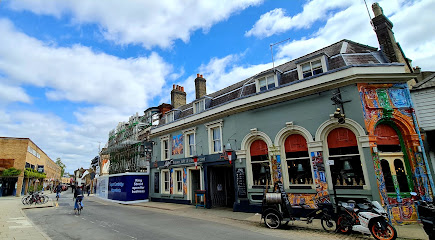
Markets, malls and hidden boutiques
Oliver Bonas
0.1 km
A feel-good British lifestyle store in Grand Arcade offering colourful fashion, curated homeware and choice gifts across a spacious ground-floor shop.

CJ’s Vintage Store
0.2 km
Discover timeless fashion treasures and iconic vintage streetwear at CJ’s Vintage Store, a stylish gem in the heart of Cambridge.

Menkind Cambridge
0.2 km
Discover unique gadgets and men’s gifts in the heart of Cambridge’s Lion Yard Shopping Centre, blending modern fun with historic charm.

Podarok
0.3 km
Discover unique gifts, quirky handbags, and beautiful jewellery at Podarok, Cambridge’s independent boutique in the Arts Quarter.
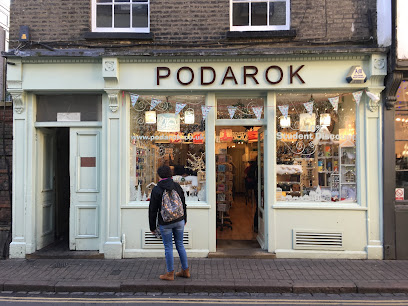
Indelibly Cambridge
0.3 km
Discover pun-tastic souvenirs and local crafts on Peas Hill, where Cambridge's witty spirit comes alive in every handpicked gift.
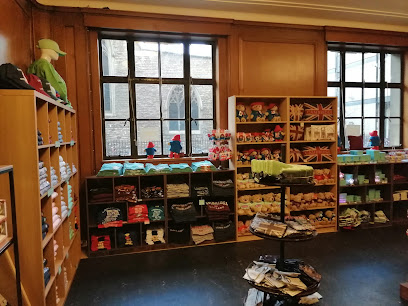
Ark
0.3 km
Compact independent gift shop on historic Peas Hill serving market crowds, theatregoers and locals with curated Cambridge keepsakes.

Samuel Smiley
0.3 km
A charming gift shop on Cambridge’s historic Trumpington Street, offering unique local treasures and a warm shopping atmosphere.

Nomads
0.3 km
Discover authentic handmade jewelry, textiles, and artisan crafts at Nomads, Cambridge’s vibrant gift shop celebrating global and local craftsmanship.
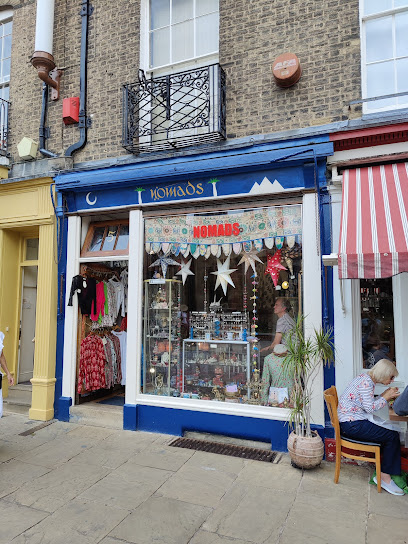
Souvenirs And Gifts
0.3 km
Authentic Cambridge souvenirs and handcrafted gifts in the heart of Market Hill.

Sugarmark!
0.3 km
Capture Cambridge's charm with Sugarmark!'s iconic mugs, apparel, and prints from the heart of Market Hill—perfect souvenirs blending heritage and style.
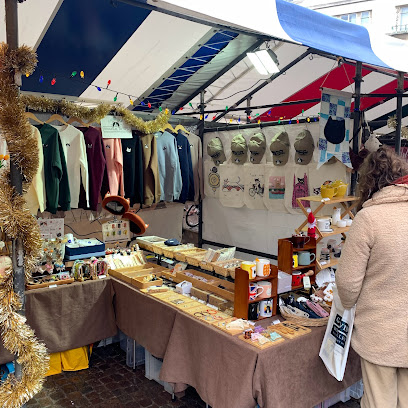
Iris and Violet Cambridge
0.3 km
Discover vibrant, curated womenswear and lifestyle pieces in the charming heart of Cambridge at Iris and Violet boutique.

As Seen On TV
0.4 km
Discover quirky vintage fashion and unique accessories with great value in the heart of Cambridge’s Market Street.
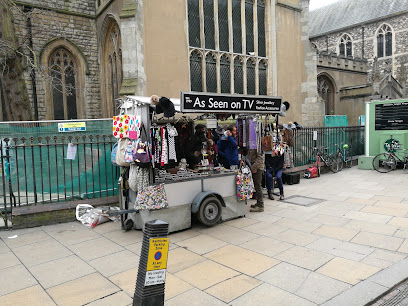
Parade
0.4 km
Discover unique Cambridge souvenirs at Parade Gift Shop, perfectly located on historic King's Parade with stunning views of King's College.
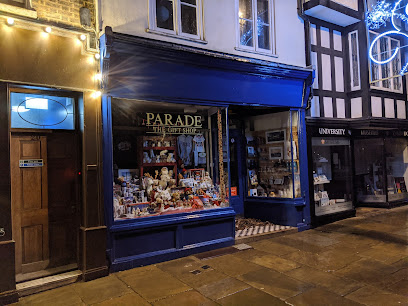
Urban Outfitters
0.4 km
Discover Urban Outfitters Cambridge for trendsetting fashion, eclectic home décor, and a vibrant urban shopping vibe in the heart of the city.
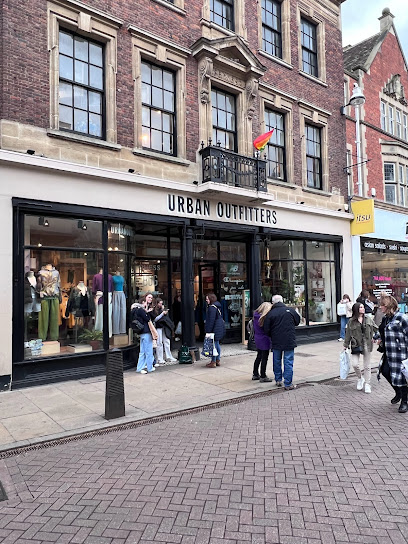
Giles & Co
0.4 km
Compact Trinity Street giftshop specialising in Cambridge-branded clothing, personalised keepsakes and locally sourced presents with friendly, knowledgeable service.
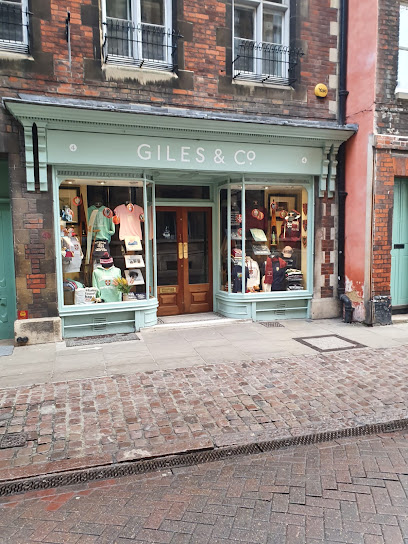
Essential bars & hidden hideouts
Bar -OH
0.0 km
Inventive cocktails and live music pulse through this intimate Cambridge gem, blending artistry with electric evenings until the wee hours.

Revolution Cambridge
0.1 km
Vibrant cocktail bar and nightlife hotspot in central Cambridge with rooftop terrace, karaoke pod, and diverse event spaces.

The Cambridge Tap
0.1 km
Lively craft-beer bar in a converted bank, known for burgers, cocktails and an upstairs room with college views.

The Castle Bar
0.1 km
Lively city centre bar pulsing with late-night DJ beats, sizzling Hot Rock steaks, and Cambridge's infectious student energy until 3am weekends.

Novi Kitchen + Bar
0.2 km
A stylish Cambridge hotspot blending Modern British small plates with botanical cocktails in a vibrant, welcoming atmosphere.

BrewDog Cambridge
0.3 km
Experience bold craft beers and innovative food in the heart of historic Cambridge at BrewDog’s lively and welcoming bar.

Bath House
0.3 km
Historic 17th-century Cambridge pub pouring Greene King cask ales and classic grub in a dog-friendly, family-welcoming spot steps from university landmarks.

Eagle
0.3 km
Cambridge's legendary pub where DNA's secret was toasted, WWII airmen left their mark, and real ales flow amid historic haunts.

Ta Bouche
0.4 km
Experience Cambridge’s lively cocktail scene with creative drinks, fresh food, and a vibrant social atmosphere at Ta Bouche.

Glitterbomb
0.4 km
A vibrant queer bar in Cambridge’s city center, Glitterbomb celebrates LGBTQ+ nightlife with inclusive club nights and dynamic drag performances.
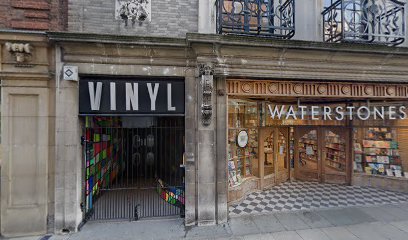
Town and Gown
0.4 km
A vibrant Cambridge pub and intimate theatre where university meets local life in a lively, historic setting with great food and entertainment.
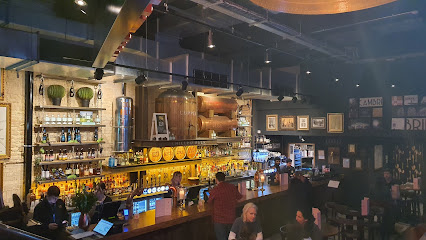
The Clarendon Arms
0.4 km
A cozy Cambridge gastropub blending authentic Italian flavors with classic British charm and a standout Sunday roast.

La Raza
0.4 km
Cambridge's basement gem for Spanish tapas, craft cocktails, and live funk beats—from daytime café to late-night haven.
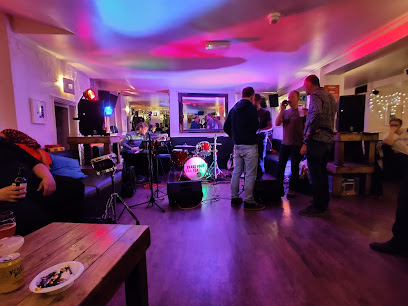
The Mill
0.4 km
Cozy 19th-century riverside pub in Cambridge offering real ales, hearty British fare, and a warm, music-filled atmosphere.
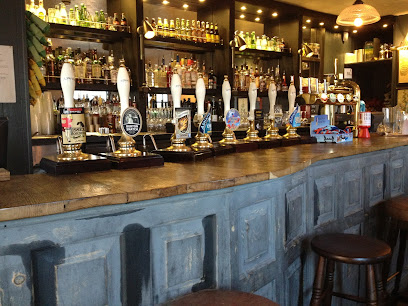
The Anchor
0.4 km
Charming historic riverside pub in Cambridge offering classic British fare, craft beers, and live jazz in a lively yet relaxed setting.

Nightclubs & after hour spots
Cambridge Lola Lo
0.2 km
Step into Cambridge Lola Lo, a vibrant tiki-themed nightclub with tropical vibes, lively dance floors, and a stunning rooftop terrace in the city centre.

High Five
0.3 km
Cambridge's electrifying gay nightclub where themed nights, drag glamour, and inclusive dance floors ignite unforgettable evenings in the city heart.

Vinyl Cambridge
0.4 km
Dance through decades on a glowing LED floor at Vinyl Cambridge's throwback haven—2-for-1 drinks, VIP vibes, and non-stop retro anthems await in the city center.

MASH
0.4 km
Cambridge’s vibrant independent nightclub offering themed music nights and a welcoming, safe party atmosphere until the early hours.

Cambridge Pop-up Speakeasy Jazz
0.8 km
Free live jazz pop-ups in a historic Cambridge pub: intimate sets, diverse musicians, speakeasy vibes on select Wednesdays at 7:30pm.
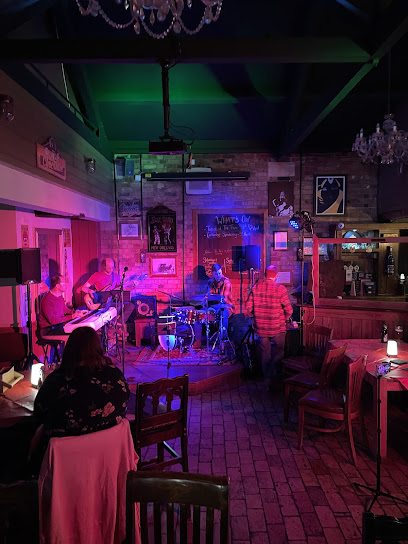
80s karaoke bar
0.8 km
Neon-lit, 80s-themed karaoke on Hills Road—compact, group-friendly singalongs from the early evening into the night.

Cambridge Working Mens Club
1.0 km
Discover the lively ambiance of Cambridge Working Mens Club, a perfect blend of local culture, music, and community spirit.

The Calling
1.1 km
Discover the vibrant nightlife at The Calling, Cambridge's premier event management venue, perfect for unforgettable experiences and fun times.
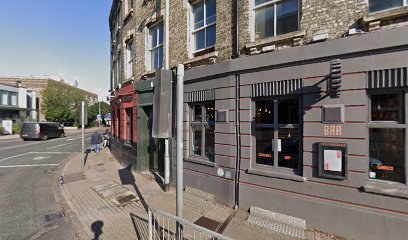
Fort St George
1.1 km
Historic riverside pub on Cambridge's Midsummer Common, serving hearty ales and classics with unbeatable Cam views and garden vibes. (162 characters)
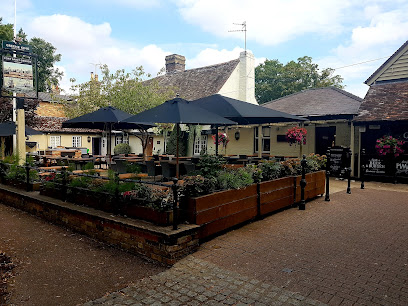
EBC Shop
1.2 km
Discover the electrifying nightlife at EBC Shop in Cambridge, where the music keeps you dancing and the atmosphere is always electric.
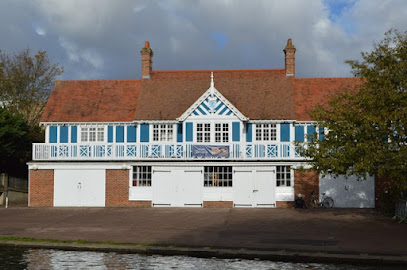
Newnham Croft Social and Sports Club
1.3 km
Experience the vibrant community spirit at Newnham Croft Social and Sports Club, a lively venue for live music, events, and friendly gatherings in Cambridge.
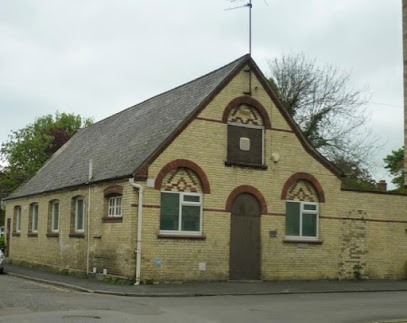
Sing Dizzy
1.7 km
Sing Dizzy offers Cambridge a lively karaoke bar experience with costumes, props, and an extensive song list for unforgettable nights of fun and music.
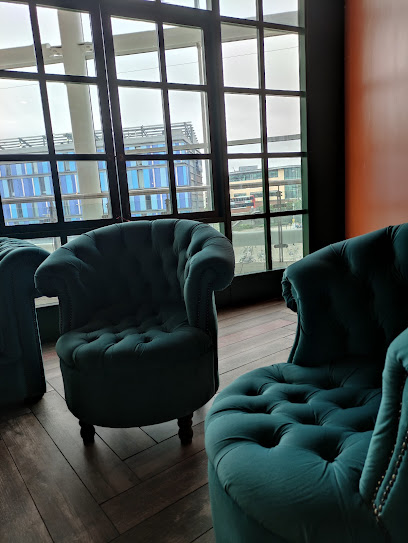
Salisbury Club
1.8 km
Cambridge's cozy Mill Road club: retro discos, pool tables, cheap drinks, and community spirit in a true local gem.
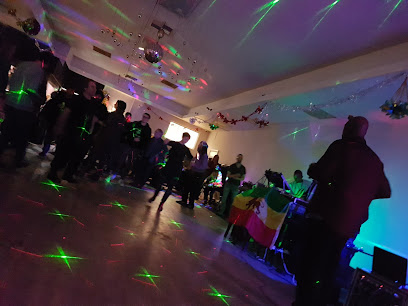
Rock
2.4 km
Experience the vibrant atmosphere and delicious cuisine at The Rock, a beloved pub and restaurant in the heart of Cambridge.

The Lounge
19.1 km
A lively nightclub and wine bar on The Broadway, offering vibrant late-night entertainment in the heart of St Ives.




